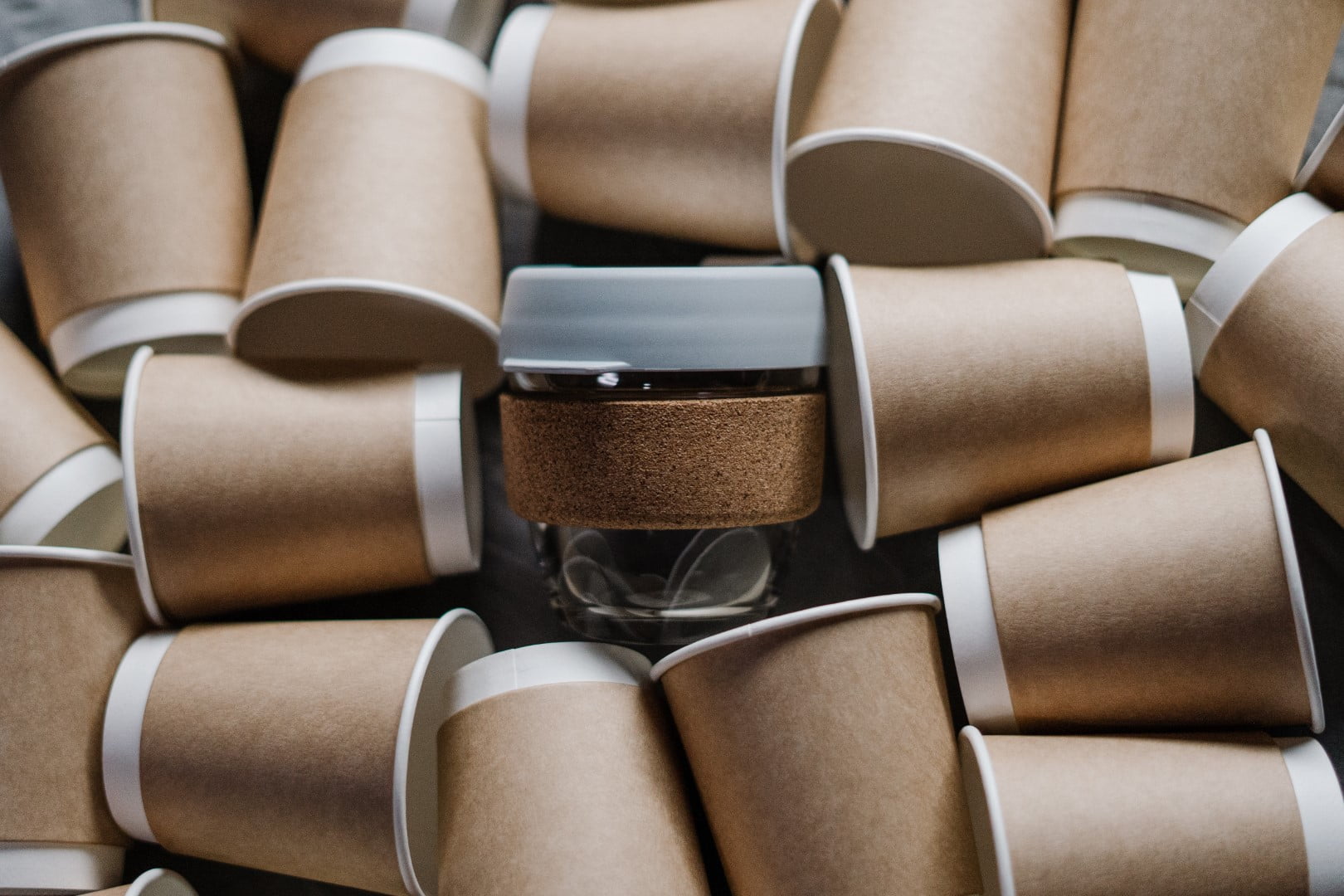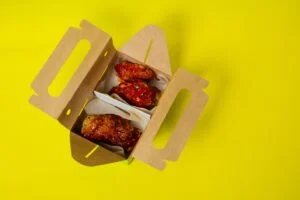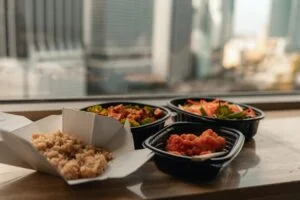If you’ve been listening to the news lately, you know it’s coming…the single-use plastic ban across Canada. The actual list of items to be banned is not extensive and will only take a small chunk out of the massive garbage problem our little planet is facing. It will initially target mainly the difficult or costly to recycle items, including foodware (Flanagan 2020). This earnest environmental initiative our government is putting into action puts restaurants in the hot seat again and during a global pandemic, no less. Restaurants are scrambling to figure out how to adjust; does that mean moving to expensive alternative disposables like “compostable” containers? Or should restaurants move into the future, save money and drastically reduce the amount of takeout waste with a transition to reusable containers? We think the latter.
Our single-use plastic problem has been around since the 1960’s when consumers were encouraged to adopt this new-age, extravagant mindset; “You are filling the trash cans, the rubbish dumps and the incinerators with literally billions of plastics bottles, plastics jugs, plastics tubes, blisters and skin packs, plastics bags and films and sheet packages–and now, even plastics cans. The happy day has arrived when nobody any longer considers the plastic package too good to throw away” (Stouffer 1963). That is what Lloyd Stouffer, a plastic marketing guru, gleefully shared with pride at a plastic conference in 1963. In six decades we have drastically transformed the way we consume – today Canadians alone dispose of roughly 3.3 million tonnes of plastic every year, and less than 10% of that is recycled (Fawcett-Atkinson). We know better now than to happily celebrate the excessiveness of our plastic disposal but our landfills are still overflowing with plastic, including most of what we have wish-cycled into the blue bins.
Of the three R’s of waste management, Reduce, Reuse, Recycle, if we’re going to have a real impact on our dire environmental situation, the focus must shift towards the first two R’s. Let’s face it, the solution to our single-use plastic problem is NOT recycling and it is NOT the transition to more alternative disposables, like the ones marketed as compostable. Max Liboiron, founder and director of Civic Laboratory for Environment Action Research (CLEAR), puts it simply; “reuse is a better type of interaction with waste” (Liboiron). Recycling is expensive and energy consuming, whereas reusing is a much more sustainable practice because the material has already been made and therefore doesn’t require the harmful impact of production. We believe that restaurants must be the starting point for the transformation towards a reusing mindset and they can do it without affecting their bottom line.
The restaurant industry has been hit harder than most during the devastating Covid-19 pandemic. They’ve seen drastic drops in their revenue and many have had to close their businesses. We love our restaurants and don’t want them to suffer more than they already have. Canadians are staying at home and ordering takeout/delivery more often than ever before, as per RCINTEL Foodservice Facts 2020; “sales generated by takeout jumped spectacularly from 15% in April 2019 to 68% in April 2020, while delivery sales surged to 28% of total sales” (Restaurants Canada) . We want to transform the way we consume our takeout while simultaneously supporting our struggling restaurateurs. The future is reusable takeout containers and all over the world these sustainable initiatives are exploding – GO Box in the United States, Ozarka in the Netherlands and Earthware in Canada are just a few of examples. Imagine the convenience of ordering takeout, enjoying food from your favourite restaurant and keeping single-use plastics out of landfills. All that is possible and we want to be a part of this waste reduction revolution. The idea behind reusable takeout containers is simple: eat, rinse, wash, repeat. Reusable containers have a typical lifespan of up to 1000+ dishwasher cycles. Once the #5 polypropylene multi-use plastic can no longer be cycled through the restaurants, this durable plastic can be transformed into other useful plastic products, like broom handles. We can no longer turn a blind eye to the problems we face globally from our plastic problem and one significant way to do that is the inevitable move towards reusable packaging.
![]()



